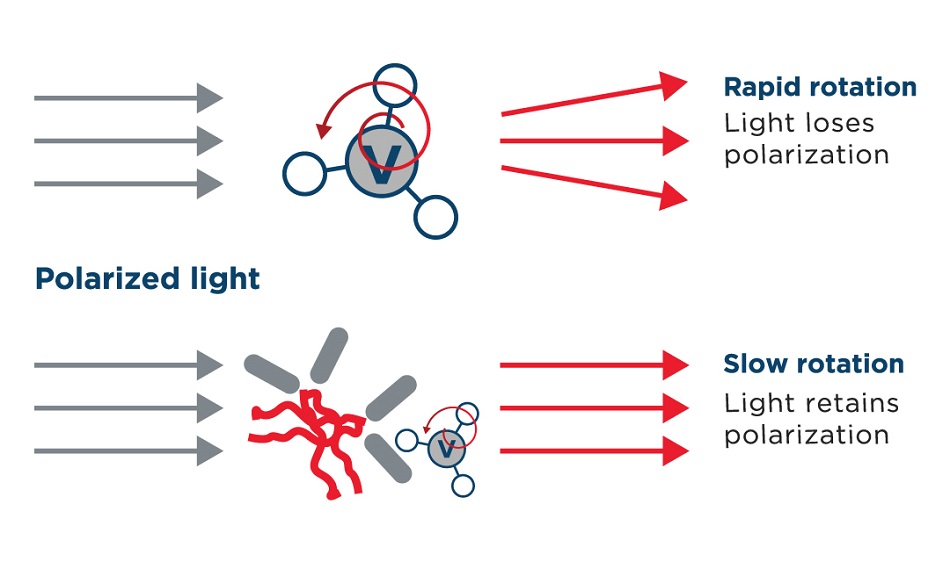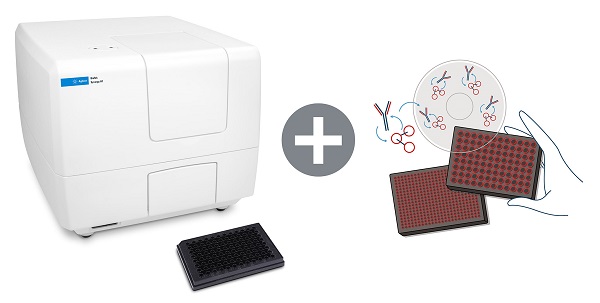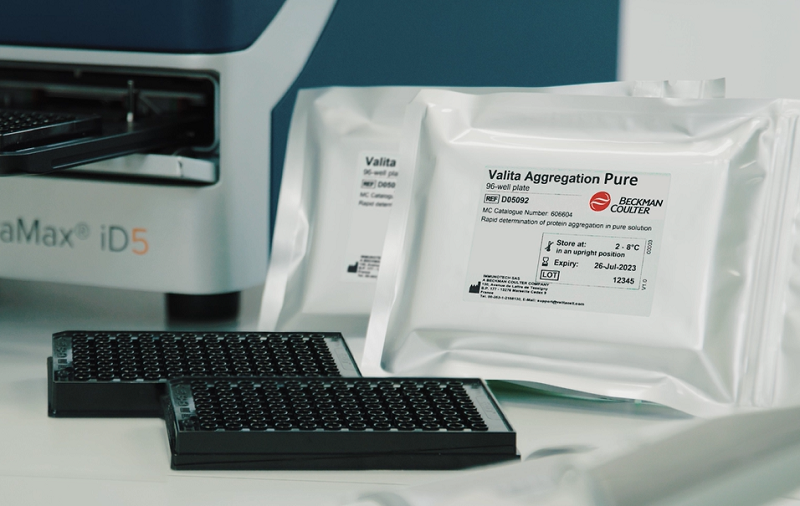Valita Aggregation Pure Assay Workflow
Available as 96-well plates, validated with samples concentrated between 200 mg/L–2000 mg/L, and with a detection limit of 0.5% aggregation at 1000 mg/L—the Valita Aggregation Pure assay enables rapid, high-throughput IgG aggregation analysis.
It's among the fastest and simplest aggregation detection tools on the market, and is compatible with high-performance microplate readers with fluorescence polarization functionality.
By enabling you to assess antibody aggregation in just a matter of minutes, it significantly enhances your antibody development workflow, allowing you to evaluate aggregation with ease at any given stage.
Simply add your purified sample to the Valita Aggregation Pure assay plate, allow it to incubate at room temperature, and screen IgG aggregation using a plate reader equipped with a fluorescence polarization module. Then, in as little as 15 minutes, you’ll have your results.
Add fresh PBS & protein sample and mix

Incubate for five minutes at room temperature

Measure aggregation using FP on a plate reader
About the Valita Aggregation Pure Assay Principle
Thanks in part to the power of fluorescence polarization, the Valita Aggregation Pure assay is among the fastest, easiest and readily-automatable aggregation screening assays available. Fluorescence polarization is a widely used technique for monitoring binding events in solution. The underlying principle uses polarized light to excite a fluorescent probe, which then emits the light again with a specific degree of polarization. The emitted light polarization is directly related to the rotational movement of the molecule. Since the level of polarization directly correlates with the amount of bound probe, it’s possible to screen protein aggregation with the Valita Aggregation Pure assay simply by measuring light polarization.

Valita Aggregation Pure assay plates come pre-coated with a probe that can bind aggregates in solution. So, if you want to measure IgG aggregation effectively and rapidly in your lab, all you’d need is a fluorescence polarization-enabled microplate reader, and filters that are compatible with red fluorescent dyes such as rhodamine.
Not sure if your plate reader is demonstrated for the Valita Aggregation Pure assay? Check below for our list of validated plate readers.
| Manufacturer | Instrument | Recommended Parameters |
|---|---|---|
| BMG | PHERAstar | Download |
| Tecan | Spark | Download |
| Tecan | Spark Cyto | Download |
| Biotek | Synergy H1 | Download |
| Biotek | Cytation 1 | Download |
| Biotek | Cytation 5 | Download |
| Biotek | Synergy Neo 2 S (single top PMT) | Download |
| Biotek | Synergy Neo 2 (dual top PMT) | Download |
We are constantly updating this list. If your plate reader is not on it yet, there’s a chance we might currently be validating it. If you want to be sure about plate reader models or settings, just reach out to us and we’ll answer any questions you have.
A complete solution for <15 minute protein titer & aggregation measurement
Optimize efficiency when you purchase Valita Titer and Valita Aggregation Pure assays bundled with an Agilent BioTek multimode microplate reader.
Learn More
Insightful Resources
The Valita Aggregation Pure assay: A rapid and accurate alternative for aggregation quantification of purified monoclonal antibodies
Valita Aggregation Pure Assay Brochure
Let’s Accelerate Your Antibody Discovery and Development
Interested in a demo? Just want to ask a few questions?
We’re here to help, please reach out anytime.










